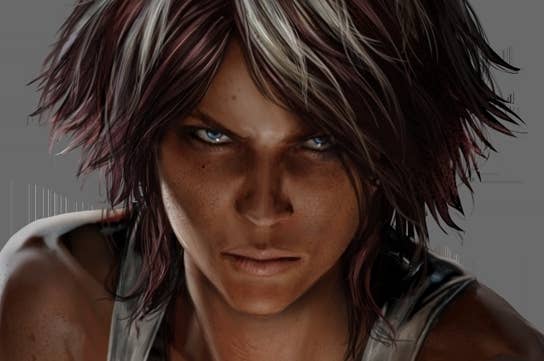Dontnod: Publishers said you can't have a female character
Creative director Jean-Maxime Moris on an unexpected hurdle for Remember Me
Dontnod Entertainment has revealed that while trying to secure a publisher for its cyberpunk title Remember Me, its lead character Nilin faced some serious sexual discrimination.
"We had some [companies] that said, 'Well, we don't want to publish it because that's not going to succeed. You can't have a female character in games. It has to be a male character, simple as that,'" creative director Jean-Maxime Moris told Penny Arcade.
"We had people tell us, 'You can't make a dude like the player kiss another dude in the game, that's going to feel awkward'"
The discomfort on behalf of some publishers, publishers apparently unaware of Lara Croft or Samus Aran, extended to Nilin's actions too, or at least the romantic ones.
"We had people tell us, 'You can't make a dude like the player kiss another dude in the game, that's going to feel awkward.'"
Moris said that during development Nilin was female because that was just what felt right, and by the time they started coming up against sexist publishers it was too late to be persuaded to give her a sex change.
"I'm like, 'If you think like that, there's no way the medium's going to mature.' There's a level of immersion that you need to be at, but it's not like your sexual orientation is being questioned by playing a game. I don't know, that's extremely weird to me," said Moris.
"You can identify with people of the other gender in movies, why could you not in games? The fact that our core target is males 15-25 is not an excuse. We need to be able to create, and respect the audience enough to believe that they can be smart enough to identify with that type of character."
The game is currently being published by Capcom, a company that was clearly OK with both Nilin's gender and her personal life. It's due for release on June 4 in the US.









